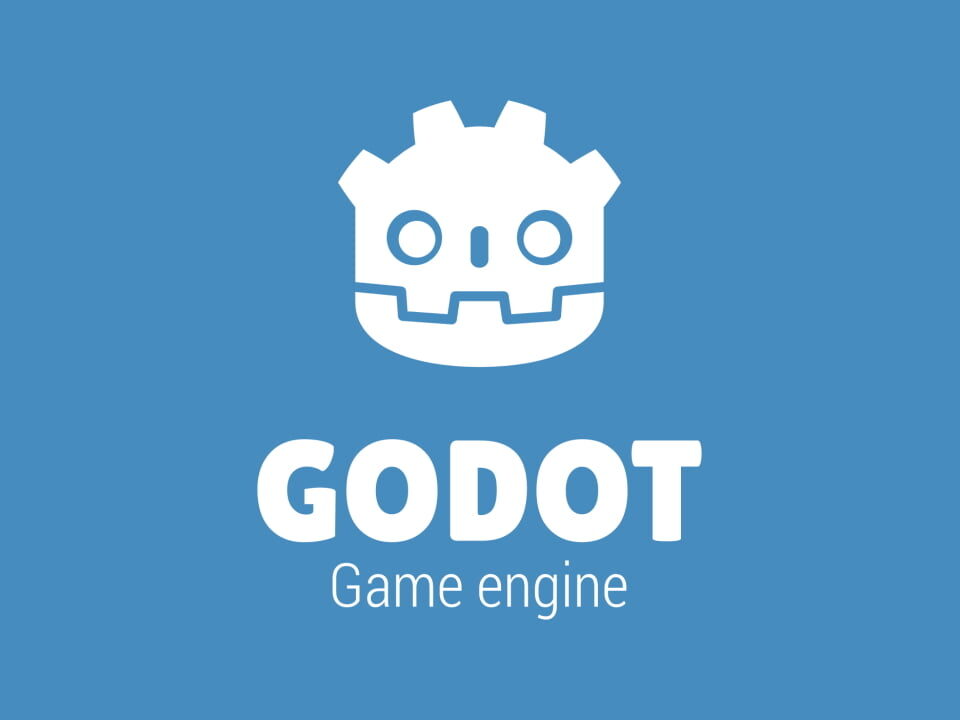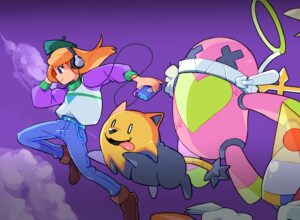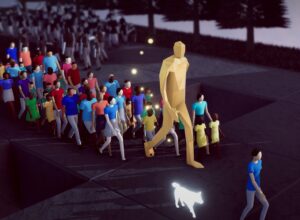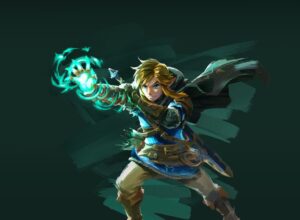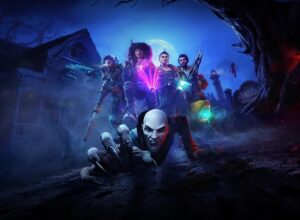It’s 2021. It shouldn’t be a massive surprise when a game engine like Godot adds proper, out-of-the-box Arabic text support, but here we are.
Depending on who you ask, there are probably around half a billion Arabic speakers in the world today.
Translation website Babbel places it around 315 million “native” speakers, but is quick to point out the flaws in this counting method. Statista reckons there were about 436 million Arabs in the world last year, but doesn’t get into languages spoken. This website estimates around 466 million in June 2021 and its calculation method looks pretty sensible, so we’ll go with that.
That’s around 6% of the population of the world, which is a big percentage when you consider the most spoken language, Mandarin, accounts for about 10-12%. (That’s the most spoken language in China, but it faces a similar statistical problem to Arabic, in that there are so many regional variants it’s hard to count it accurately.)
When you include people who are non-native Arabic speakers, but who read enough Arabic to understand it – for instance, the nearly 2 billion Muslims who read the Qur’an – that number gets closer to a quarter of the world’s population.
And yet, Arabic – and other right-to-left (RTL) languages, like Persian/Farsi – are poorly represented in the video game world.
Often, that comes in the form of lazy window-dressing. Someone sticks a vaguely Arabic-looking sign in their environment art, or something that looks like Arabic script on a prop, and calls it a day. It’s the video game equivalent of people getting mangled Chinese/Japanese/Korean tramp stamps with no idea what they mean.
Who will ever notice? They wonder.
Well, potentially a couple of billion people, including notable Arab game developer, consultant and advocate, Rami Ismail. He set up Is This Arabic? to help people understand what they’re getting wrong, with links to helpful resources. (And also to Nope, Not Arabic, which is a rogues gallery of poor attempts at Arabic found in the wild. Less helpful, perhaps, but sadly, still necessary.)
This is obviously a cultural and educational issue, for sure, but it’s also potentially a bit of a technical one? With limited resources, developers, designers and artists will turn to the tools they have – from text-rendering tools in game engines like Unreal and Unity to art-making tools like Photoshop or Indesign – to produce their “Arabic” content.
If you can load an Arabic-looking font into the tool, surely it will just work, right? Surely all text rendering works the same? People think, naively. (Please refer back to Exhibit A, Nope, Not Arabic, for a reminder of how that works out in reality.)
So with the tools producing something – text that might look vaguely like what they’re trying to achieve, at least to the untrained eye – it’s easy to see how these things find their way into games (and movies, and comics, and…) so often. People trust tools to do what they expect, even if they don’t have any first-hand knowledge themselves. Especially if they don’t have any first-hand knowledge.
For Western developers using Arabic as window dressing, it’s embarrassing, but for Arabic developers trying to actually use their own language? It’s just not good enough.
It’s something you would think that, in 2021, with so many Arabic speakers and readers in the world, game engines like Unity would have caught up with by now. Goodness knows, people have been asking them for it for years.
So it shouldn’t be news when a game engine properly implements Arabic script, out of the box and with no extra plugins or hacks or workarounds. But Godot, the scrappy little open-source engine that is fast becoming the other option for game developers, has done just that.
A tweet from a Qatari game dev called Faisal drew people’s attention to the addition of Arabic to Godot:
This is a major turning point for #Arabicً #GameDev 😳
Arabic text is supported out of the box by #GodotEngine4! There are no addons, no extra scripts, and everything is simple!
Thank you @godotengine team 👌🏻#تطوير_الالعاب #العربية pic.twitter.com/xOMpyNDPWW
— Faisal🇶🇦 (@QatariGameDev) September 17, 2021
But, predictably, it was Rami who put it best:
"sorry your literal alphabet is not a priority" "we're can't promise you can write in our engine even after we look into it for the future" lol how hopeful are we as a people that we accepted that as an excuse for what, six or eight years now?
— Rami Ismail / رامي (@tha_rami) September 20, 2021
A round of applause for the folks at Godot Engine, then.
Correction: The original publication of this article stated that Godot was the first engine to include native Arabic support. Unreal Engine 4 does also include Arabic language support, but Unity does not.
Be sure to follow Thumbsticks on Twitter and Facebook for more development news.
